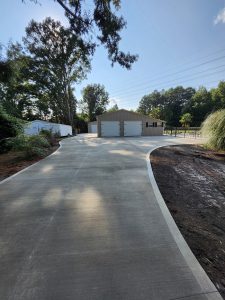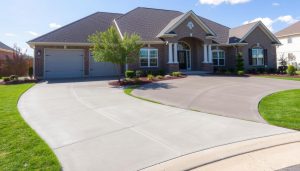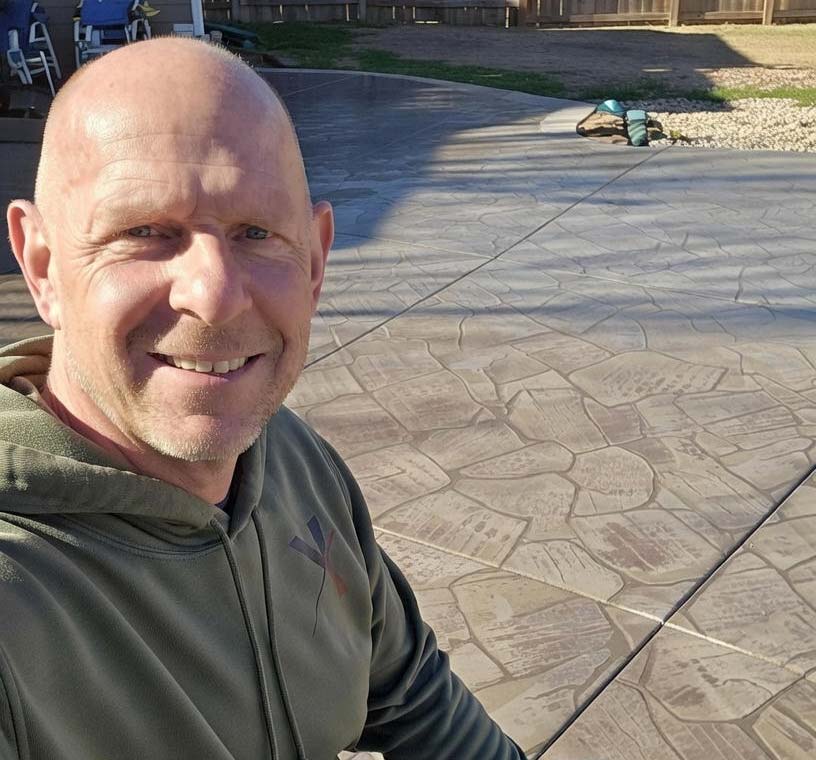When you’re considering a new concrete driveway, price is often the first thing on your mind—and for good reason. Installing a driveway is a major investment, and homeowners in Charlotte want to feel confident they’re spending their money wisely. But with quotes ranging anywhere from $4 to $15 per square foot, it can be hard to tell what you’re actually paying for.
At Youngblood Waterproofing and Concrete Services, we believe in full transparency. Here’s a closer look at what goes into the concrete driveway cost Charlotte NC, and how to make smart choices that support both your budget and long-term durability.
What’s Included in the Cost of a Concrete Driveway?

The average homeowner in Charlotte pays between $5,000 and $12,000 for a standard two-car concrete driveway. That price can swing higher or lower depending on several factors, but the general breakdown includes the following:
1. Concrete Material Itself
Concrete is typically sold by the cubic yard. A standard driveway pour might require 10 to 20 cubic yards of concrete, and at $130–$150 per cubic yard in the Charlotte market, that adds up quickly. Costs also vary based on the mix (basic vs. high-strength or fiber-reinforced).
2. Labor
Labor is often the largest portion of your quote. A quality team will excavate the area, install forms, handle the pour, finish the surface, and return for joint cutting or sealing. Labor in Charlotte averages $45 to $75 per hour, depending on project complexity.
3. Site Preparation
Before concrete goes in, we need to prepare the space. That may include:
- Excavation and grading
- Removal of old driveways or tree roots
- Laying a gravel or sand base for stability
These prep steps affect the longevity of your driveway and should never be skipped.
4. Reinforcements
For added strength, especially in areas with clay-heavy soil like Charlotte, we may use:
- Wire mesh or rebar
- Fiber additives in the mix
- Control joints to manage cracking
These choices protect the structural integrity of the slab over time.
5. Finishing Touches
A broom finish is standard, but some clients opt for stamped patterns or decorative borders. Decorative concrete adds curb appeal but can raise the price by $2–$8 per square foot.
What Affects the Final Price?
While every project is different, these factors often impact cost:
- Size: A larger driveway increases both material and labor needs.
- Thickness: Most residential driveways are 4 inches thick, but areas with heavy vehicle traffic may require 6 inches.
- Access: A hard-to-reach pour site requires extra equipment or labor.
- Shape: Curved or custom-shaped driveways take more time and precision.
- Drainage Requirements: Sloping the driveway or adding trench drains may add to costs but prevent bigger issues later.
What Does Concrete Cost in Charlotte, NC?
In Charlotte, you’ll generally pay:
- $4–$8 per square foot for basic concrete
- $8–$15 per square foot for decorative or reinforced concrete
Remember: the lowest bid doesn’t always save you money. Poor preparation or rushed pours can lead to cracks, crumbling, or drainage issues that cost more to fix down the line.
How to Save Without Sacrificing Quality
We understand that budgets matter. Here are a few tips to help you make smart financial decisions:
- Stick to a simple design: Straight, rectangular driveways cost less to form and pour.
- Schedule during off-peak months: Planning ahead gives you better pricing and availability.
- Bundle services: If you’re also installing a patio or walkway, doing them at the same time may reduce labor costs.
- Ask about additives: Some reinforcements can extend the life of your slab without a large price jump.
These small choices can stretch your budget and support long-term performance.
Why Charlotte Homeowners Choose Youngblood

When you hire Youngblood Waterproofing and Concrete Services, you’re working with a team that prioritizes long-term results and customer satisfaction. We:
- Take time to evaluate soil conditions before we pour
- Provide honest estimates with clear itemization
- Use high-quality materials sourced locally when possible
- Keep you informed at every stage of the project
We’ve worked with homeowners across Charlotte to build driveways that hold up to real use—not just the first season, but for years to come.
Ready to Start?
A well-installed concrete driveway adds value, durability, and peace of mind. If you’re thinking about replacing your existing driveway or building a new one, let’s talk.
Contact Youngblood Waterproofing and Concrete Services today to schedule a consultation. We’ll walk you through the process, answer your questions, and help you create a long-lasting driveway that works with your budget.


